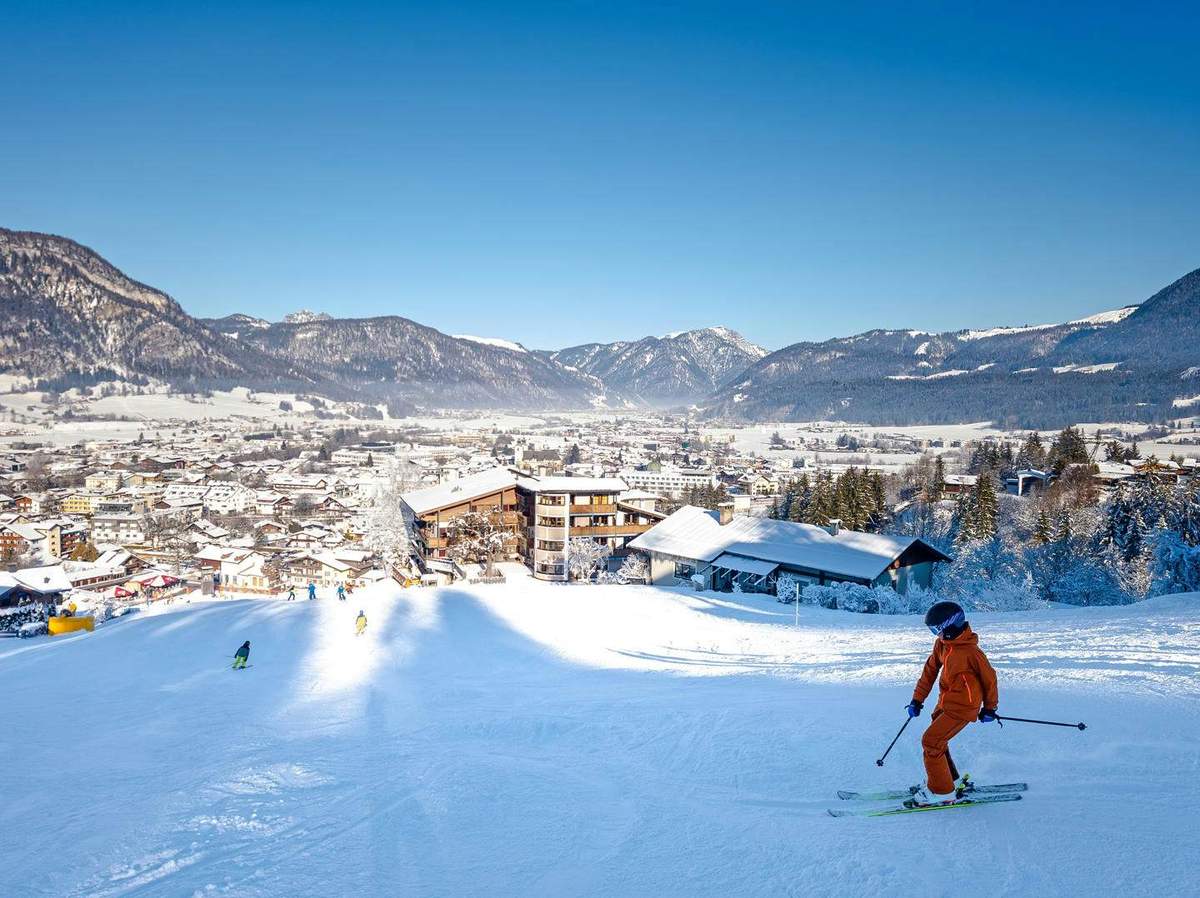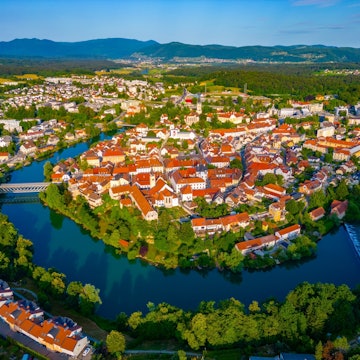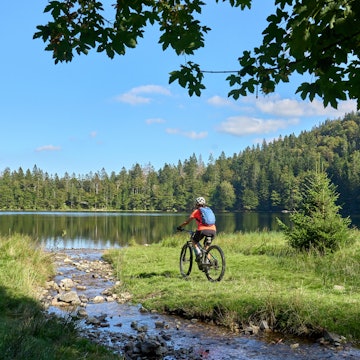

From meat-heavy meals such as Brettljause (pictured) to experimental cuisine in top restaurants, Austria's cuisine has come a long way © photoflorenzo / Getty Images
Whether in a Beisl (bistro) or Buschenschank (wine tavern), mountain inn or Michelin-starred restaurant, Austrian fare is served with soul and a dedication to local suppliers, seasonal produce and the slow-food movement.
Traditional foods rooted in carb-laden fuel for mountain toil and dishes dripping with imperial legacy still top the menu, but new-wave experimentation, reinvention and a boom of international kitchens are pushing Austria beyond schnitzel and into the culinary spotlight.
Here are the best things to eat and drink in Austria.

Try Vienna's signature dishes
Your first dig into traditional Austrian fare will likely be Vienna’s tasty trio of signature dishes. Wiener Schnitzel (flattened, breadcrumbed veal cutlet served with potato salad), Emperor Franz Joseph’s favourite Tafelspitz (boiled beef, served with roasted potatoes, vegetables, and horseradish sauce), and Gulasch (paprika spiced meat stew), which has its origins in Hungary.
If you still have space, try Apfelstrudel (a flaky pastry with apples and raisins) or Kaiserschmarrn (shredded fluffy pancake served with a fruit compote). Meanwhile, a Würstelstand (sausage stand) is where you'll find the legendary Käsekrainer (a sausage filled with tiny cubes of cheese) for a late-night snack.
Where to try them: The Wiener Schnitzel was first served in 1905 by proclaimed inventors Figlmüller, and Tafelspitz is best sampled at the Viennese institution Plachutta. Griechenbeisl is the city's oldest restaurant, having served traditional grub since 1447, and Würstelstand LEO is Vienna's longest-standing street food establishment, in operation since 1928.
Get a taste of Austria's Michelin-starred cuisine
Traditional dishes are a feast, but the meals to splurge on are those from Austria's 16 Michelin-starred restaurants – 15 of which are in Vienna and Salzburg.
Where to try it: Steirereck Meierei in Vienna is an Austrian fine-dining and cheese restaurant in the Stadtpark (city park) with three menu options. Tian is a gourmet vegetarian restaurant rooted in rare ingredients and experimental cooking. Guest chefs change monthly at Ikarus, the restaurant in Salzburg Airport’s glass architectural showpiece, Hangar-7. Elsewhere in the city, the hilltop à la carte restaurant Glass Garden at Hotel Schloss Mönchstein also features a vegan menu.
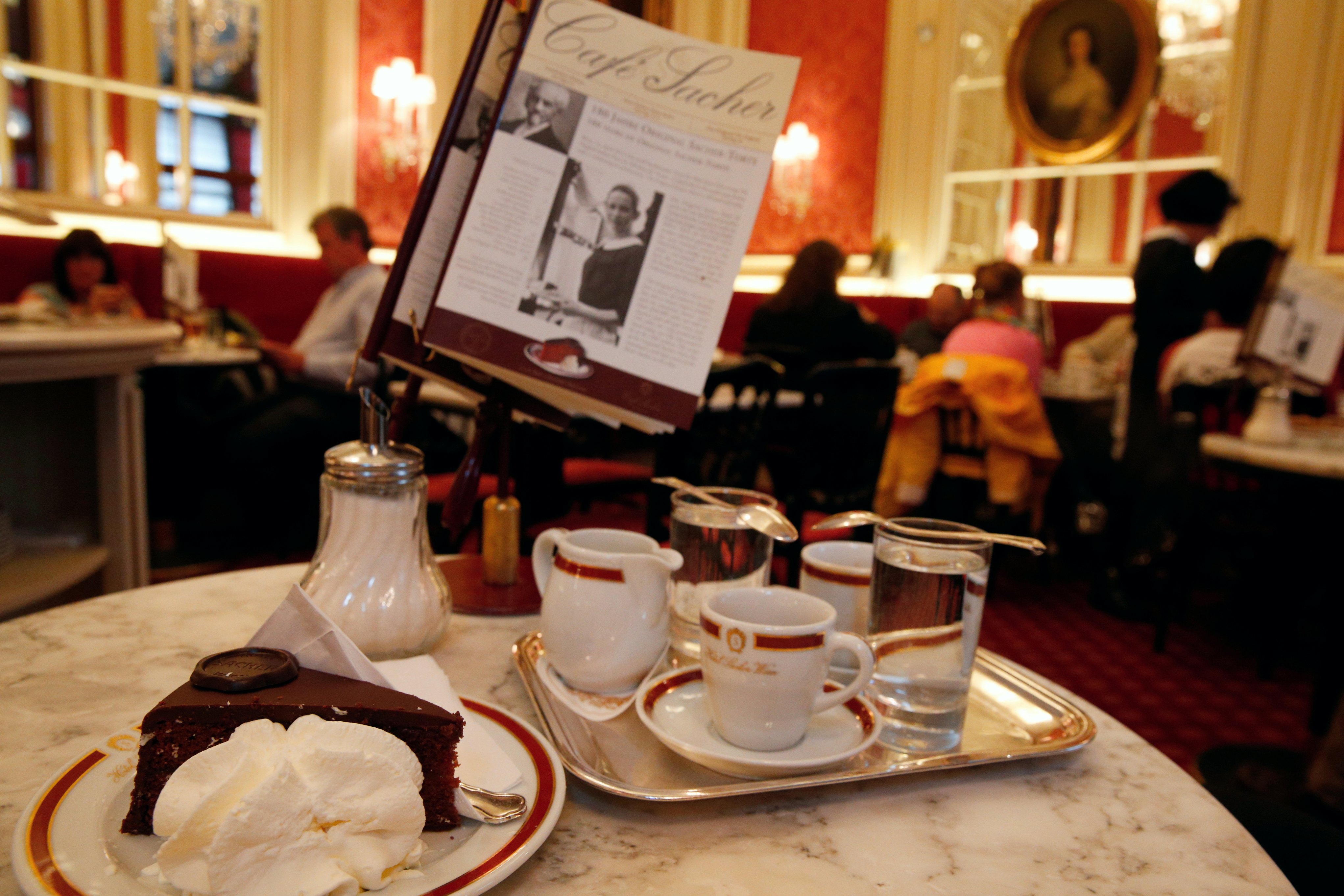
Drink in the coffee-house culture (with a side of cake)
Legend has it that Vienna's love of coffee began when the Turks left behind a few bags of beans after the Siege of Vienna in 1683. Now recognised on UNESCO's List of Intangible Cultural Heritage, the coffee-house culture continues in wood-paneled rooms with bentwood chairs and newspaper stacks, where waiters in formal attire serve Wiener Küche (Viennese cuisine), coffee and pastries in plush, extended living rooms perfect for writers, artists and thinkers.
Where to try it: The Ringstrasse blazed a trail when it came to café construction, but just three remain of the original 30: the Art Nouveau Café Prückel; Freud's favourite, Café Landtmann; and the marble-mirrored Café Schwarzenberg. On Herrengasse, the vaulted, gilded Café Central was the elite meeting place of poets, philosophers and revolutionaries, and now commands the longest queues for entry. The red-velvet-upholstered Café Sacher on Philharmonikerstrasse is the place to try your first bite of Sacher Torte (glazed chocolate cake with apricot jam). Order a Wiener Melange (half coffee, half milk foam) or Kleiner Brauner (espresso with a side of milk).

Quaff Austrian wine on a “Heuriger-hop”
Sip on an Achterl (a 0.125L glass of wine) direct from the vintner in Austria's hilltop vineyards; in a rustic Heuriger (wine tavern) in a viniculture village; or in a wine cellar in Austria's three major wine-growing regions.
Where to try it: Head to Lower Austria's Weinviertel (wine quarter), where 14,000 winemakers produce a third of the country's wine, or to the stone-terraced vineyards by the Danube in the Wachau Valley, such as Domäne Wachau. Neusiedler See in Burgenland is part of the Pannonian climate ecosystem, cultivating wine on surrounding mineral-rich terroir. The old town of Rust is a tavern-packed haven for tastings.
By extension, Vienna to the south is hedged by 700 hectares of vineyards, making it the only European capital to grow wine within its city limits. Grinzing in the 19th district is the place to begin. Since 80% of the wine cultivated is of the white grape variety, start with the famed Grüner Veltliner and Rheinriesling. Red tipplers should try the Zweigelt and Blaufränkisch.
Styria is a patchwork of meadowed, sloping vineyards, and the best way to taste your way through the region is by the glass. Head to the string of wineries making up the South Styrian Wine Road and stop in at the Buschenschänken (local wine taverns serving only their own cultivated wine and cider). Sauvignon Blanc and Morillon whites, and Schilcher and Blauer Zweigelt red grape varieties are the ones to try.
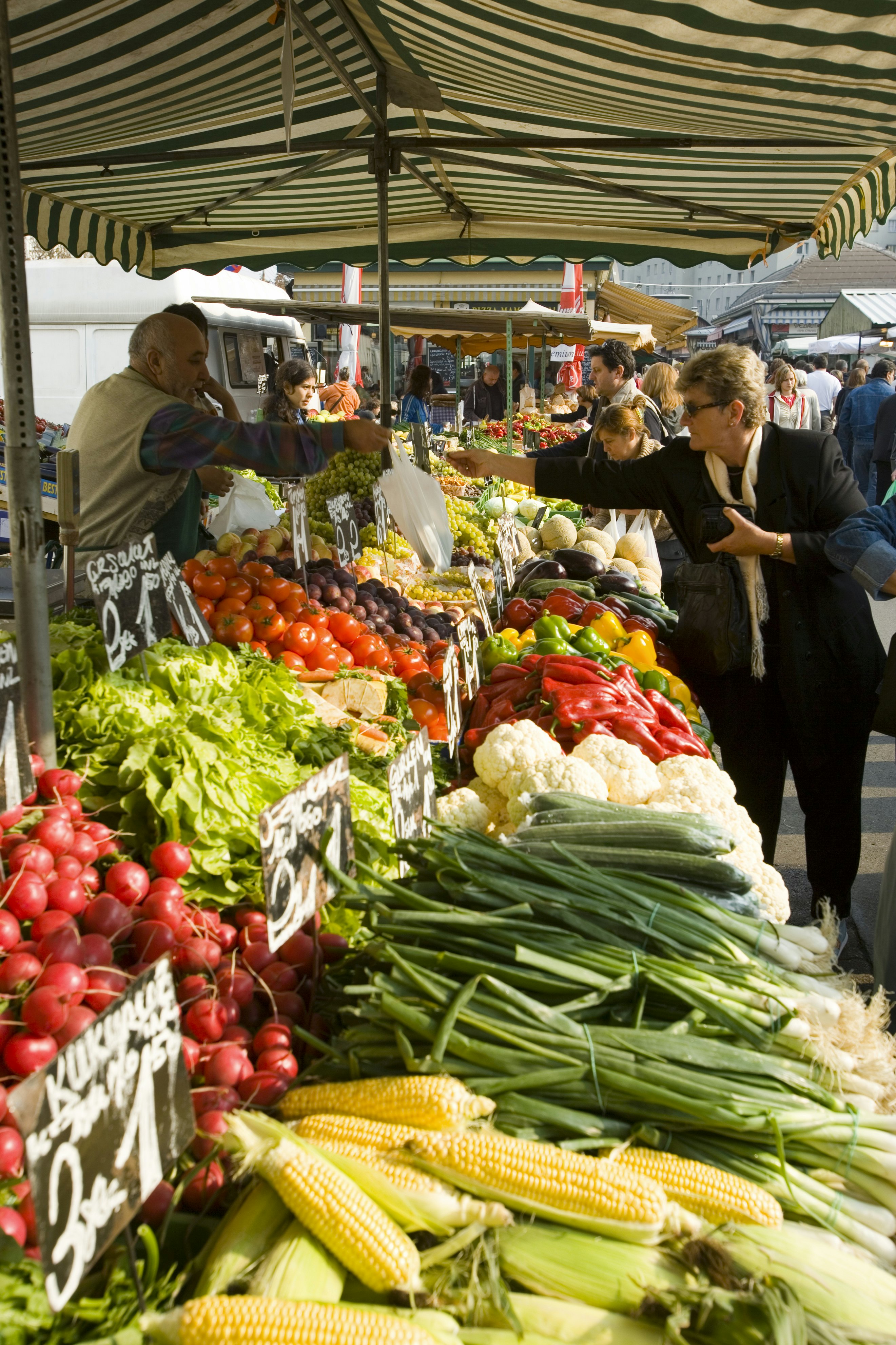
Feast on regional, seasonal and sustainable produce
The farm-to-table concept is not just a trend in Austria; it's a way of life. Restaurants take pride in preparing and cooking with homegrown or locally sourced, artisanal produce, and menus are ever-changing, reflecting the seasonality of the ingredients. Carinthia, the world's first slow-food travel destination, and Graz, Austria’s “Culinary Capital,” are at the forefront of the small-scale and biodiverse food movements, championing sustainable and local food culture in restaurants.
Where to try it: Farm-fresh local supplies are brought to daily markets that are a mix of produce stalls and street food. Vienna boasts 800 urban farms and community gardens, and the 120 food stalls in Naschmarkt and the 170 at multicultural Brunnenmarkt are the largest markets in the city. The fruit, vegetable and flower stalls of Kaiser Josef Markt in Graz and Salzburg's Grünmarkt bring organic rural goodness to the urban table. Innsbruck's Market Hall is a one-stop shop that combines offerings from local farmers with artisanal Tyrolean grocery stores.

More traditional Austrian food worth trying
Lower Austria has its prized Waldviertel Mohn (poppy seeds) and seasonal Wachau apricots, which are used to craft a range of sweet-tooth treats including Marillenknödel (apricot dumplings) and Mohnnudeln (stubby potato dough noodles with poppy seeds and sugar).
Styria’s apples produce renowned cider, but the region's liquid “green gold” is pumpkin seed oil, which is generously poured on everything, especially Backhendlsalat (fried chicken with potato salad) or as an accompaniment to a Brettljause (a platter of cold cuts, cured meats and cheeses).
Freshwater fish are sourced from the glazed lake regions, like pike perch from Neusiedler See in Burgenland, and Carinthia’s Kärntner Lax’n (lake trout). The go-to southern snack is the moreish Kärntner Nudeln (ravioli pockets with cheese, potatoes, chervil and mint).
Meanwhile, the mountains are dedicated to Käse (cheese). Vorarlberg’s famed mountain cheese is best savoured on the KäseStrasse Bregenzerwald – not quite a “cheese street,” but rather a regional alliance of 22 cheesemakers and dairies. The powerhouse post-hike dish is egg noodle dumplings with oodles of cheese and a crispy onion topping. It's called Käsknöpfle in Vorarlberg, Pinzgauer Kasnockn in Salzburgerland, and Kasspatzln in Tyrol. Or forgo the cheese and dig into a Tiroler Gröstl (potato, onion, bacon, and egg fry-up) or Speckknödel (egg dumpling with bacon), followed by the sugary high of Salzburger Nockerl (three fluffy-peaked soufflé dumplings).
Vegetarians and vegans
Austria's cuisine is heavy on meat – it's the typical centrepiece of traditional dishes. Likewise, cheese-based dishes, egg noodles and sweet dishes with pastry and pancake bases are unsuitable for vegans. However, vegan menu options are becoming commonplace in modern establishments, especially in larger cities. Healthy fast-food chains like Veggiezz and Swing Kitchen lead the charge for affordable vegan and vegetarian meals.
Keep planning your trip to Austria:
Navigate like a local with these tips for getting around
Check out these budget-friendly tips before you book
Save these top road trips to your profile






